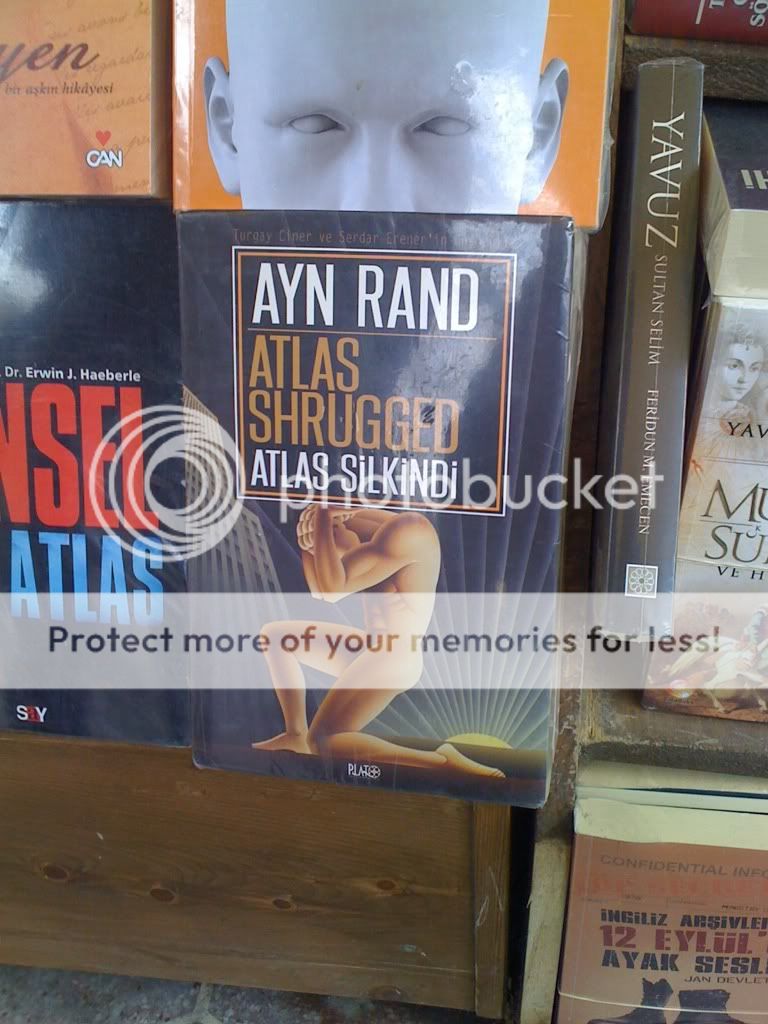Not that I'm suggesting you do illegal things...
Monday, May 23, 2011
Caramel Anarchiato
Not that I'm suggesting you do illegal things...
Wednesday, May 4, 2011
Thursday Thinker: Sir Antony Fisher
Thursday, April 28, 2011
Sequel to Hayek vs Keynes Rap!
After you're done geeking out over this and memorizing the lyrics, remember to share with your friends! Hayek said the second-hand dealers of ideas change public opinion, and boy do we have a long way to go when it comes to changing public opinion against Keynesian ideas and for the ideas of liberty!
PS: listen through the credit roll to hear a shout out out to Malthus & Mises!
Thursday, April 21, 2011
Thursday Thinker: Frederic Bastiat
It's 4/20! This means....Free Pot Brownies from AUSFL!
Treasurer of AUSFL, tabled in MGC for 3 hours, giving away Pot Brownies to students walking by:
Freedom Fair: Do AU Students Care About Free Speech & Individual Rights?
Also, a few stills:
Tuesday, April 12, 2011
Deadline for getting AUSFL Tee Shirt!
If you can't make it to the meeting tonight in Ward 102 at 8 pm, contact Emily at es6192a@student.american.edu to arrange another time.
Meeting Tonight!
Join us in Ward 102 at 8 pm to discuss your views on private philanthropy and redistributive policies!
AUSFL National Debt Sign is up!
Swing by in front of the library and check out our 48 foot long masterpiece!
It will stay up between now and Friday, April 15th.

 |
| Advertise our meeting to your friends! |
It also took almost 2 hours to set up. Thank you Alexander Zeymo, Alex McHugh, Emily Schofield, Daniel Sanbeg, and Karina Zannat for working on the set up from 11 pm to 1 am on a Monday night!
***We could really use your help breaking it down on Friday afternoon, please email austudentsforliberty@gmail.com to volunteer***
Monday, April 11, 2011
Exploitation!

Wednesday, April 6, 2011
Liberty Music?
Tuesday, April 5, 2011
AUSFL Response to AU Elections: Free and Fair?
The DC Two-Step
Jaywalking is one of those societal ills that just won’t go away. Like a stubborn case of the sniffles, it’s mildly annoying at worst but still awful because no matter how much Nyquil you chug you just can’t get rid of it. Legislators have tried lots of tricks to get rid of jaywalking: from fines, to pretty little crosswalk designs that they hope will entice you to stay in the lines. Here in DC we have an especially good collection of gimmicky walk signals created to catch your attention and keep you on the sidewalk. For instance, the Mass Ave walk signal that sounds like a fighter pilot relaying commands: Walk sign is on to cross, walk sign is on to cross. Roger, roger, Mass Ave walk signal, you’re coming in loud and clear. Or at least you would be if I wasn’t halfway across campus by the time you’re ridiculously loud speakers reached me. You see, like many of the things we would like to discourage, jaywalking is one of those things that will still continue to happen as long as you have streets. What bothers me most about jay-walking is not that everyone does it or even that it’s technically pretty dangerous. What bothers me most is that the people I see most doing it are those most involved in making laws against it. This is one thing I learned from working near Capitol Hill. I think it must be a matter of pride for legislators and their aides to see who can most boldly and nonchalantly place themselves in front of honking, speeding cars. I have actually been audibly scoffed at for waiting for a crosswalk signal. But there is more to the issue than the obvious problem of trying to legislate something so ubiquitous out of existence.
So what’s my problem? Of course I think they should be allowed to risk their lives like this since they obviously find it to be a very worthwhile sport. My problem is that the politically powerful tend to be insulated from the laws they pass to deal with problems like this. You will never see a legislator get a jaywalking ticket. I have, however, seen friends of mine get jay-walking tickets simply because the police in quiet suburbs tend to be very bored. A number of the laws our legislators make do not influence them directly. This is sometimes because they are literally seen differently in the eyes of our laws. For example, many workplace laws do not apply to congressmen’s offices and staff, allowing them to reap the benefits of cheaper labor that they deny to businesses on grounds of ethicality. Another big shocker for most people is the fact that congressmen don’t always have to abide by insider-trading laws that exist for the average citizen. And most think corruption on this scale is something that only happens in faraway countries with hard to pronounce names. ($5 if you can guess which country this flag represents without looking it up.Click for the answer.)
Other times it is because they are treated differently by law enforcement officials. Ex-Federal Marshall Matthew Fogg spoke at AU a while ago about the harmful effect the drug war has had on America. One of the major things that he stressed was the practice within law enforcement, especially in drug policy, of intentionally going after lower-level dealers and poor users who could not retaliate or sue. He recalled asking his superiors why they don’t go after the wealthy kingpins and politically powerful known drug users. But this makes things messy for law enforcement, and so the politically powerful get away with more. Legislators tend to live outside the realm of reality in a lot of ways and I think it goes without saying that when lawmakers are this far removed from the impacts of the laws they pass, we should really consider whether they are good judges of what policy works and how it affects the average citizen. So, while I support the congressman’s right to jaywalk (and take drugs, and play extremely dangerous sports, and eat twelve Big Macs a day if he so pleases) I just wish he would stop making it impossible for me to share in the sport he so adores.
-Reposted from my personal blog at http://kierkegaurd.wordpress.com/
Wednesday, March 23, 2011
Thursday Thinker: F.A. Hayek
Sunday, March 20, 2011
False Dichotomies and the Other Extreme
Graffiti was super-prevalent as well, a lot of it was political. I have no idea if this was? |
A glimmer. |
























